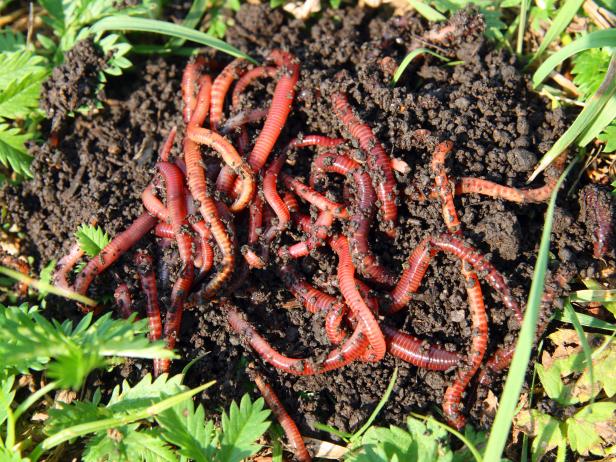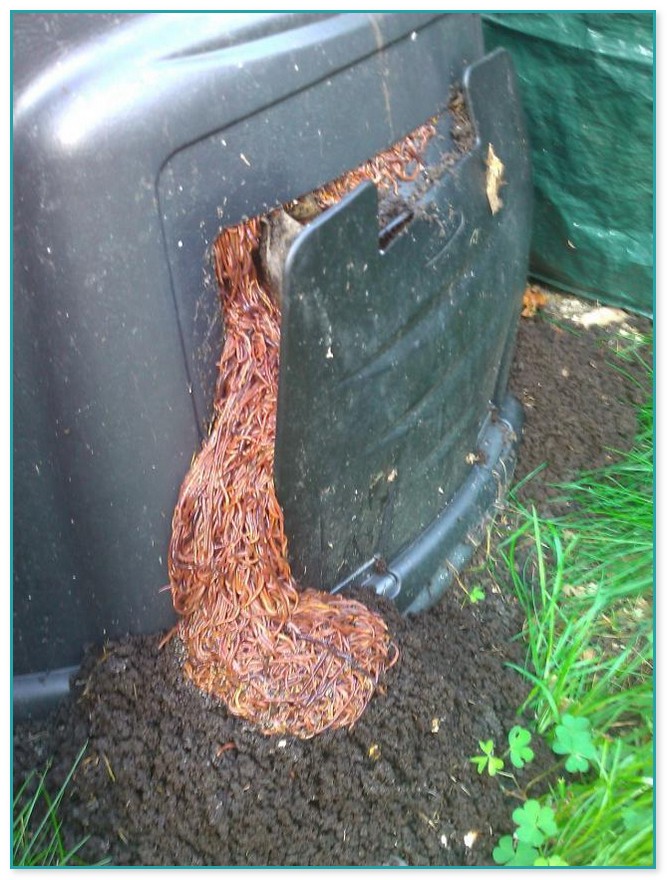42 maggots in compost pile
Are Maggots In Compost Bad? Should You Get Rid Of Them? In moderation, maggots are actually beneficial to your compost pile. They accelerate decomposition and are much more effective than microorganisms at dealing with large pieces of waste. If they get too numerous you can get rid of them by drying out your pile slightly (adding browns) or sprinkling some organic garden lime powder over your pile. Is manure brown or green compost? Add moldy foods to the center of the compost pile and on top of brown, dried material like hay, leaves or grass clippings. ... Maggots, or compost-dwelling soldier fly larvae, breed in compost bins because they thrive on the nitrogen-rich products of the decaying process that produces good compost fertilizer.
Are maggots good for compost? Maggots, or compost-dwelling soldier fly larvae, breed in compost bins because they thrive on the nitrogen-rich products of the decaying process that produces good compost fertilizer. Maggots are harmless and may even help the composting process by breaking down organic material. ... A properly balanced compost pile should not smell bad ...
Maggots in compost pile
Dealing with Maggots in the Compost Pile - Southeast AgNET The discovery of maggots in compost isn't the end of your pile, and there are things you can do to get rid of them. Such as adding layers of brown, well-dried things like leaves, straw, and egg... How to Get Rid of Fungus Gnats on Marijuana Plants - ILGM 19.05.2022 · First, you need to ensure that your compost pile isn’t too moist. Excessive moisture is the primary reason for fungus gnats appearing in your compost pile, so take this piece of advice very seriously. A good rule of thumb is that compost piles shouldn’t seem wet, but they should be similar in moisture to a sponge that has been squeezed out. Chapter 1, The Decomposition Process - Earth-Kind® Landscaping … Temperature of the compost pile is very important to the biological activity taking place. Low outside temperatures slow the activity down, while warmer temperatures speed up decomposition. The microbes that make up the bulk of the decomposition process fall into two categories: mesophilic, those that live and function in temperatures of 50 to 113°F, and thermophilic, those …
Maggots in compost pile. 5 Effective and Easy Ways to Get Rid of Maggots in Compost Maggots will appear in your compost only if a fly lays eggs inside. Thus, although compost requires good air flow that does not mean you make huge holes that flies can use to enter. Always cover the holes using a mesh screen to prevent entry of flies and further stop more eggs to be laid. Solution 5: Use Fly Traps Big maggots in your compost? They're soldier fly larvae So, if you want to avoid having these large flies and their maggots in your compost pile, make sure you have enough leaves, dry grass, shredded paper and other organic "brown" material in the pile to cover the nitrogen food sources by at least two to four inches. Be sure to bury food scraps deeply in the pile and cover them well. Maggots in Compost? They Aren't As Bad As You Think - Here's Why You can avoid maggots in your compost by physically preventing flies from entering by using a lid, a dry layer on the top of the compost, and protective screens over the holes. Choosing what waste you put in your compost and avoiding high-sugar and high protein scraps will also go a long way in keeping the maggots at bay. Maggots in Compost Pile: What it Means & What To Do Though potentially useful, flies and maggots are not required for successful composting. Once attracted by the scent of decomposing matter, BSFs arrive and lay eggs on the surface of the compost pile. These flies and their resulting larvae will eat the tissues and cells of the green waste and defecate them back into the surrounding soil.
How do I control maggots in my compost? - Compost Guide Finding maggots in your compost is a sign that you either have too many green materials in your compost pile and not enough browns, or that you are not turning your pile frequently enough, which can lead to moist pockets of kitchen waste that maggots can't get enough of. Are Maggots in Compost GOOD or BAD? - Compostablethings Not turning or mixing your compost pile often can be another cause of maggots in your compost. To prevent warmer center and cooler edges at the center or bottom of your compost bin, be sure to mix up your tumbling composter or open-air compost with a pitchfork or shovel every day. Continue doing this until the larvae die. Maggots in Compost? Here's What You Need to Know The only way you can get maggots in your compost is if an adult BSF lays eggs. So while compost needs good airflow, that doesn't mean that you need to provide huge holes for the flies to enter and exit from. Covering the air holes with a mesh screen is often enough to stop more eggs from being laid. Solution 4: Let them be! Managing bugs in your compost - Dave's Garden 20.12.2012 · Occasionally, compost visitors fall into the really creepy, but otherwise innocuous, class. They typically do not play a major role in the decay process. Centipedes and spiders haunt the pile in search of a meal, preying on plentiful microlife. Predatory beetles could come by on patrol for tiny prey. Earwigs enjoy rotting or tender vegetation and the occasional meal in the …
Maggots in Compost: Good or Bad? Here's What to Do What we've learned is that, in most cases, maggots in your compost is just fine. But it can be good or bad. If you allow a giant infestation then you'll end up with less nutritious compost, but even then the damage is minimal. Your garden will still be better off with your less-than-perfect compost than with none whatsoever. You'll Also Enjoy: Should I Worry About Maggots In Compost? - BackyardDigs Maggots are voracious eaters, breaking down even large amounts of food scraps in only hours, so your compost finishes faster The larvae are rich in calcium, which ups the nutrients in the compost Maggots can process compost "no-no's" such as meat, cheese, or greasy food items, which reduces kitchen waste even more Top Reasons Why You Have Maggots in Your House - Pest … 12.10.2021 · Compost; Rotting organic matter; As long as you remove the things that attract flies and maggots, you are doing what you can to reduce the chances of having maggots in your house. If an adult fly spots a rotting animal or another form of rotting organic matter, it lays eggs. When these eggs hatch, you will have several maggots! Maggots in Compost? | Why It's a Good Thing - Public Goods Add more browns: Your compost should be a balance of wet and dry materials. Dry materials, also called browns, are things like dried leaves, grass, shredded paper and cardboard. Maggots need a moist environment to survive. Adding more browns would create a dryer environment. Cover holes with a screen to keep out flies: If flies cannot enter ...
Composting 101 | NRDC Recycling food and other organic waste into compost provides a range of environmental benefits, including improving soil health, reducing greenhouse gas emissions, recycling nutrients, and ...
Dealing with Maggots in the Compost Pile - AgNet West The discovery of maggots in compost isn't the end of your pile, and there are things you can do to get rid of them. Such as adding layers of brown, well-dried things like leaves, straw, and egg cartons. This will dry the compost out and reduce the amount of food available to the fly.
Use Fish Scraps as Garden Fertilizer - Gardening Channel This is a great resource if you know an angler or fish yourself and want to set up a compost pile for fish scraps. Where to Find Fish Scraps. If you are not an angler, don’t worry. There are many ways to find fish in your community. Try a fish market and ask for their scraps. Most will be happy to give them to you. It’s just like asking the coffee shop for their used grounds. If there is ...
Maggots in Compost: Identification, Prevention & Solutions Maggots help break down organic matter in the compost pile, enabling it to decompose more easily. Also, the flies inoculate the pile with helpful bacteria from other sources that they carry in on their bodies. This can improve the fertility of your compost when you go to use it in your garden. What Attracts Black Soldier Flies?
How To Get Rid of Maggots In Your Garbage Can 10.09.2014 · Moreover, the middle of the compost pile is where most of the action of microbial decay occurs, so regular rotation and aeration are a must to ensure that things are breaking down. For people who have room to compost outdoors, this means regularly turning your compost, often using tools like a pitchfork or shovel. Although many indoor ...
Advice on making compost - Charles Dowding 04.12.2018 · I keep a pile of shredded branches near to the summer’s compost heaps, for adding to any large additions of grass mowings and fresh leaves. Other brown materials are paper, best crumpled, cardboard which you can add in large pieces, wood ash (in winter my heaps are up to 10% wood ash), soil, and straw, which gives good structure and aeration.
EPICA Stainless Steel Compost Bin 1.3 Gallon-Includes Charcoal … AS FEATURED IN BON APPETIT AND FORBES | THE PERFECTLY SIZED COMPOST BIN: Say hello to Epica’s premiere 1-gallon compost bin. The world fell in love with Epica’s perfectly sized marvel, made compact enough to keep on your counter and big enough to hold several days’ worth of compostable organic kitchen. Measures 7.16” in diameter x 11 ...
How to Deal with Maggots in Your Compost - MorningChores The discovery of maggots in compost isn't the end of your pile, and there are things you can do to get rid of them. Add more brown things - Adding layers of brown, well-dried things like leaves, straw, and egg cartons will dry the compost out and reduce the amount of food available to the fly. Make the top layer brown material to act as a barrier.






0 Response to "42 maggots in compost pile"
Post a Comment